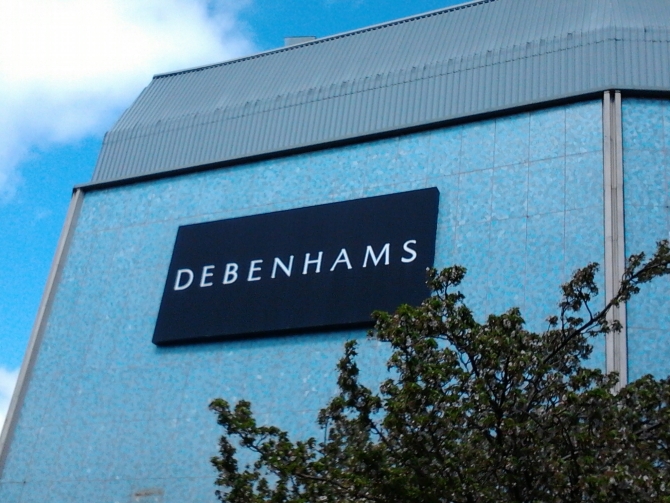As cheaper imported and domestic brands become ever more popular, many staples of the British retail scene are finding it difficult to boost sales and raise profits on the high street. This has been especially true of both Marks and Spencer and Debenhams, which have seen rival brands overtaking them in sales and edging in on their market share.

Debenhams has today reported a 25 per cent plunge in profits for the first half of the financial year, with pre-tax profit amounting to £85.2 million in the 26 weeks to the 1st of March. The department store claims that weak Christmas sales contributed to the disappointing result, along with strong online competition, promotional campaigns led by key rivals and a higher drop than expected in clothing sales.
Although group like for like sales during the period, excluding the impact of new store openings, rose by 1.5 per cent and revenues climbed by 1.7 per cent, Debenhams was forced to cut prices dramatically in order to shift stock in the post-Christmas annual sales. This ate heavily into profit margins and put the retailer on the back foot as the key spring/summer product lines were released.
However, chief executive Michael Sharp has refused to become discouraged by the result and instead has taken it as a learning opportunity, claiming the retailer is now taking “decisive action” to address problems contributing to the fall in profits.
He continues; “I am confident that the changes we are putting in place will provide a better customer experience and, over time, stronger results for our shareholders.”
Many of these changes will involve the retailer’s multi-channel shopping options, as Mr Sharp believes a weak online presence contributed to consumers choosing rivals when doing their Christmas shopping. Over the next six months, executives will examine ways in which to improve both the ordering and delivery service, with the first change being an extension of the cut off point for next day online delivery from 2pm to 10pm.
Furthermore, Debenhams’ click and collect service will be upgraded in order to make it more flexible for busy customers. Those choosing to use the service will be able to pick up their orders the day after they are placed, in line with the service offered by key high street rivals.
In terms of changes to stores, Mr Sharp claims the first priority will be to increase the range of both own-brand and concessionary lines in each of the 152 shops it operates in the UK. He will also examine the possibility of ensuring each of these stores has at least one restaurant or café on site, hoping that this target will be met by next April.
With competition incredibly fierce in the retail industry, it must simply be hoped that these changes will not prove to be “too little, too late” for Debenhams’ customers.
Do you think Mr Sharp’s idea to install cafés and restaurants will prove popular with consumers, or should improving the retailer’s online shopping experience be more of a priority?